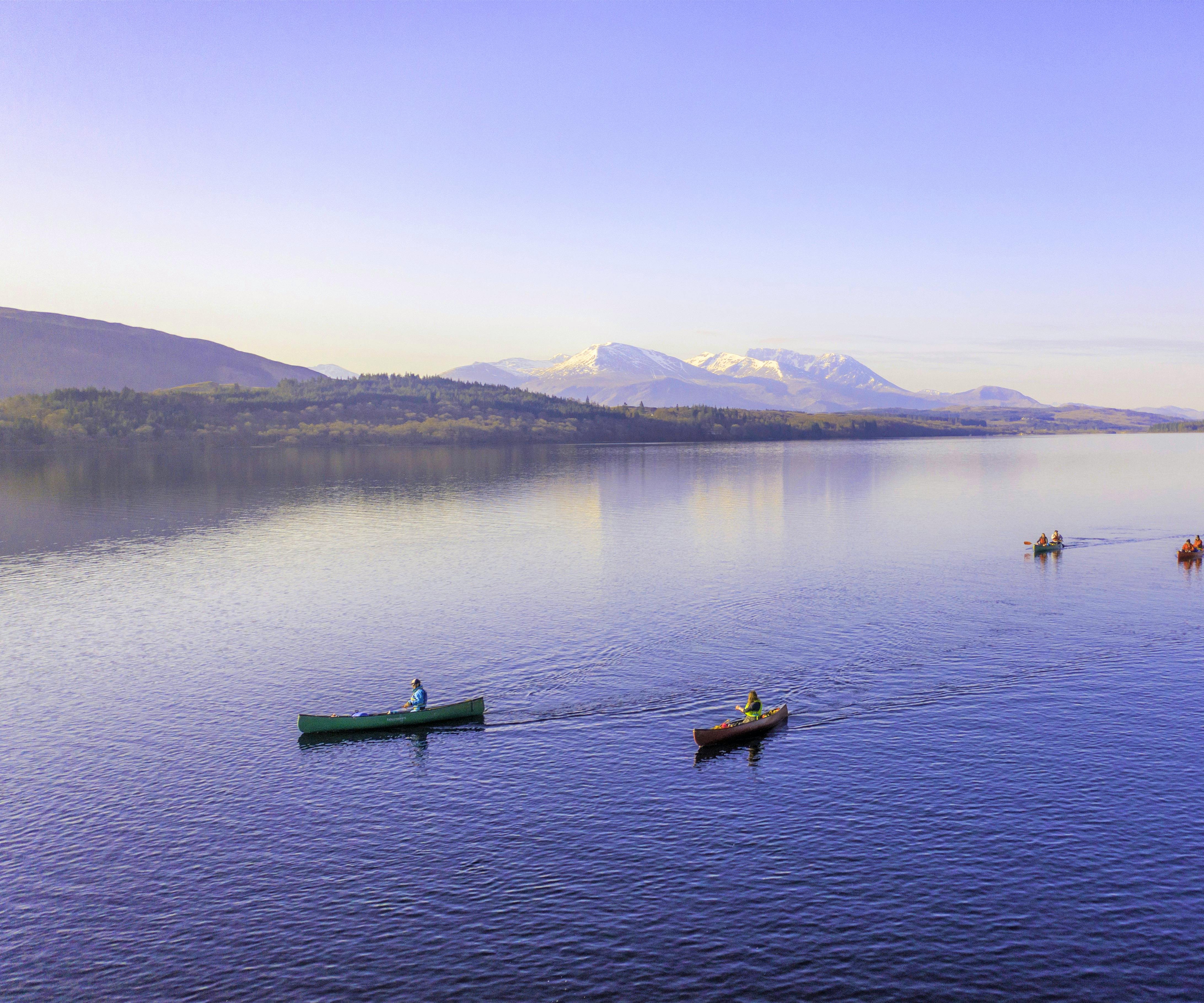Is Everest Base Camp Worth It?
Is Everest Base Camp worth it? That’s the burning question on the minds of adventurous souls contemplating this iconic trek. Let’s delve into the compelling reasons why this journey is not just a trek but a life-changing experience.
5 Reasons Why The Everest Base Camp Trek Is Worth It
Wondering if the trek to Everest base camp is worth the investment of time, money, and effort? Let’s dive into five compelling reasons that make this trek a once-in-a-lifetime experience you won’t regret.
Ready to book? See EBC trips on Skyhook.
1. The Unbeatable Scenery
When it comes to jaw-dropping vistas, the Everest Base Camp trek is in a league of its own.
Imagine walking through lush forests, crossing high-suspension bridges over roaring rivers, and meandering through quaint Sherpa villages—all with the backdrop of the towering Himalayas.
But that’s just the appetiser. As you ascend, the scenery transforms, offering panoramic views of some of the world’s highest peaks, including Ama Dablam, Pulmorii, Lhotse and of course Mt Everest!
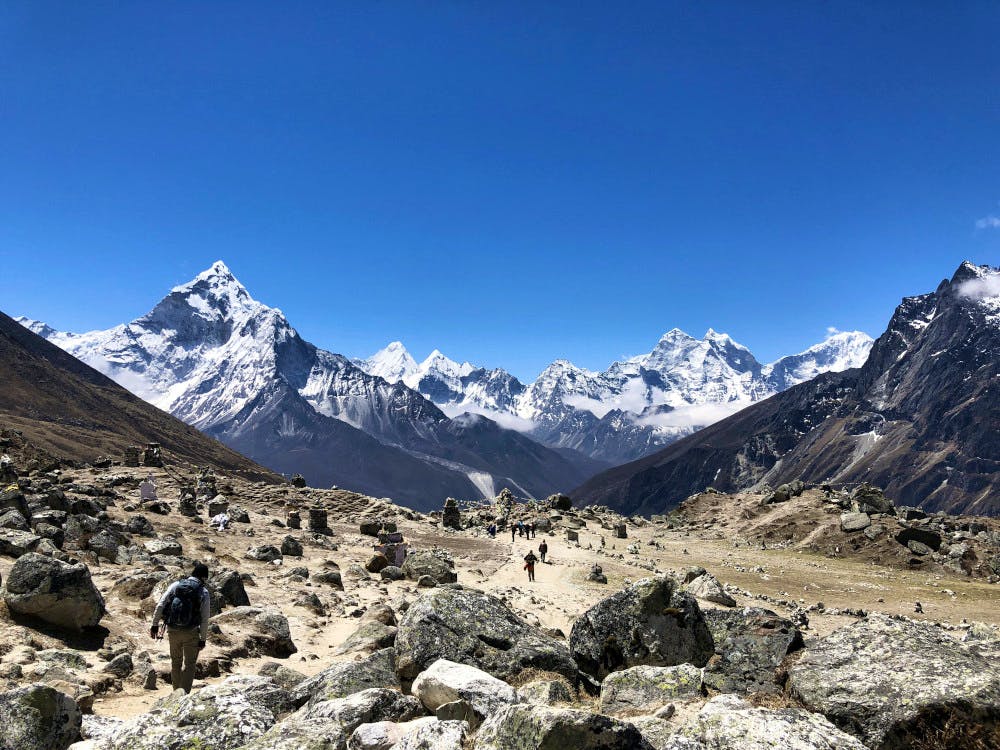
The real showstopper? The sunrise from Kala Patthar, a vantage point at 18,519 feet. Here, the first rays of the sun kiss the snow-capped peaks, turning them into a mesmerising palette of oranges and pinks.
It’s a sight so surreal it feels like a painting come to life.
And let’s not forget the Khumbu Glacier, one of the highest glaciers in the world, which you’ll pass on your way to the base camp. Its intricate ice formations are a spectacle you won’t see anywhere else.
In a world where we’re often glued to screens, the natural beauty you’ll encounter on this trek is a powerful reminder of what we’re missing.
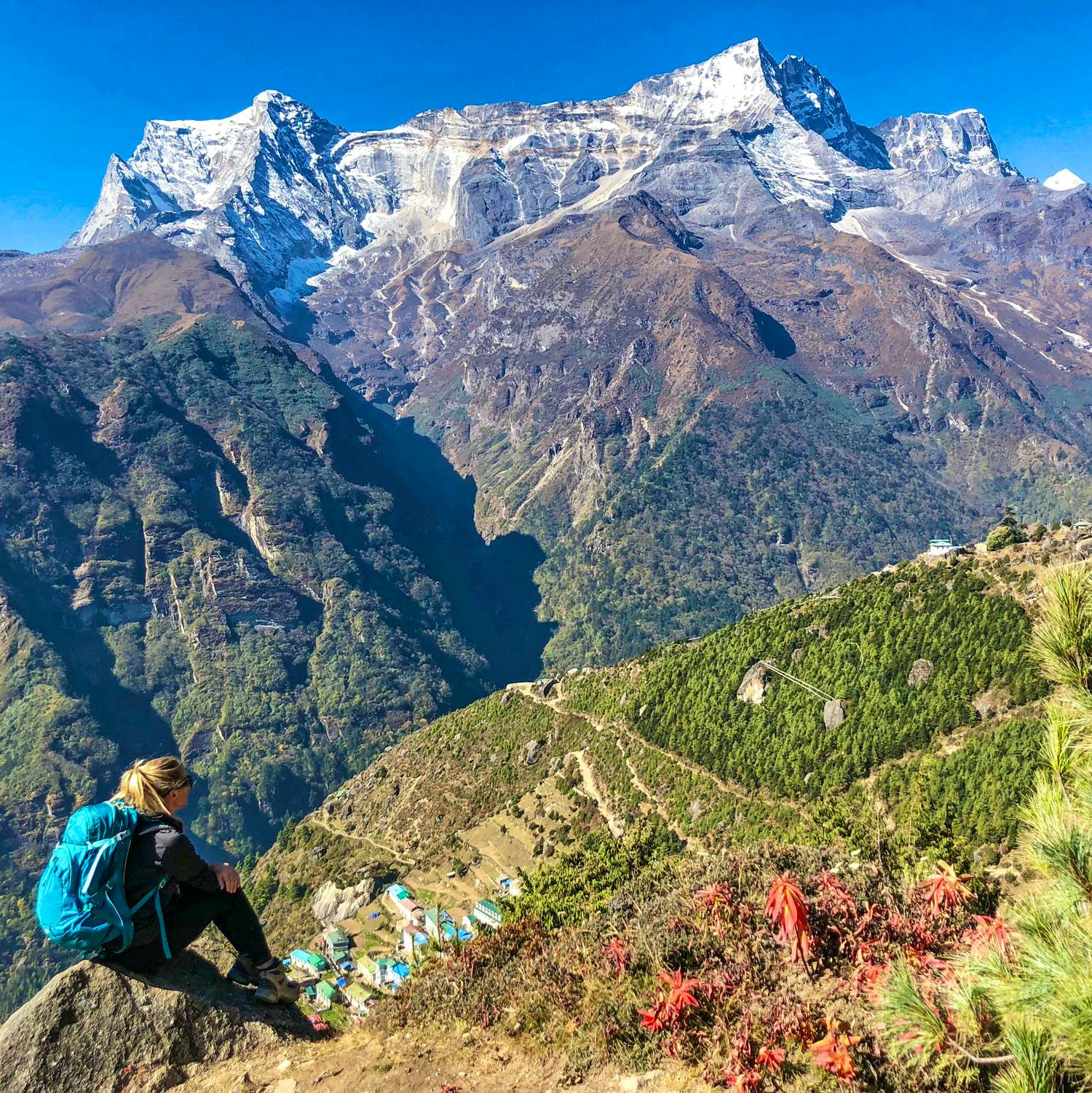
2. The Cultural Experience
Embarking on the EBC trek isn’t just a physical journey; it’s a cultural odyssey that takes you deep into the heart of Sherpa country.
Originally from Tibet, the Sherpa people have a rich cultural tapestry intrinsically tied to the Himalayas.
As you trek through villages like Namche Bazaar and Tengboche, you’ll have the opportunity to interact with local Sherpas, whose warmth and hospitality are legendary.
One of the highlights is the visit to the Tengboche Monastery, one of the most significant Buddhist monasteries in the Khumbu region. Here, you can witness monks in deep meditation or chanting prayers, a spiritual experience many trekkers find unexpectedly moving.
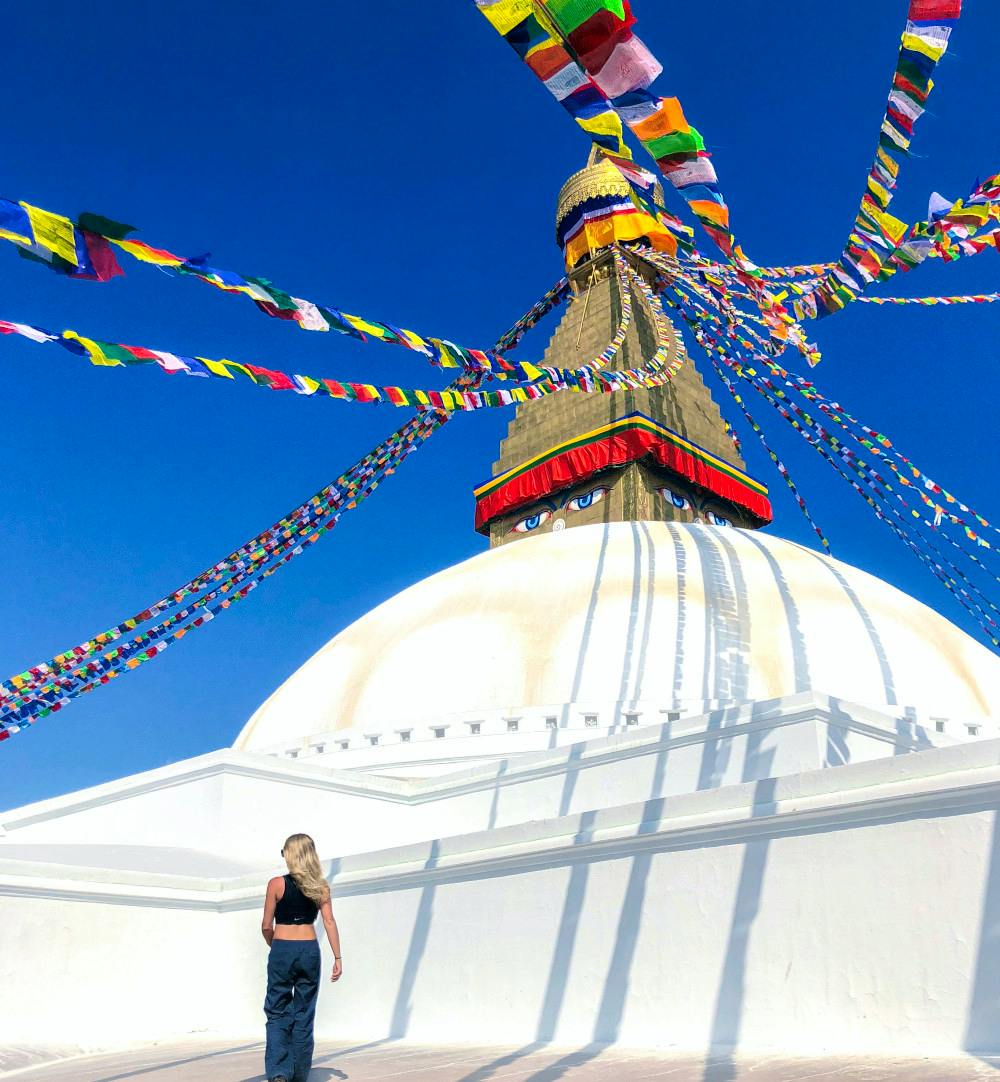
Don’t be surprised if you’re invited to join a local festival or ceremony; these spontaneous interactions offer a unique window into Sherpa life that few outsiders can see.
But it’s also about participating. Whether you’re sharing a cup of butter tea with a local family or learning about the significance of prayer flags and wheels, these cultural exchanges enrich your understanding of the world.
They add depth to your trek, going beyond the physical challenge and making the journey to Everest Base Camp a transformative experience.
3. The Physical and Mental Challenge
Let’s be honest: the Everest Base Camp trek is no walk in the park. With elevations reaching over 17,000 feet, the physical demands are intense.
You’ll be trekking for days on end, often in challenging weather conditions, and the thin air makes every step feel like an effort. But here’s the thing—overcoming these challenges is part of what makes this trek so incredibly rewarding.
The physical exertion tests your limits, pushing you to discover strengths you never knew you had. And it’s not just a test of physical endurance; it’s a mental game, too.
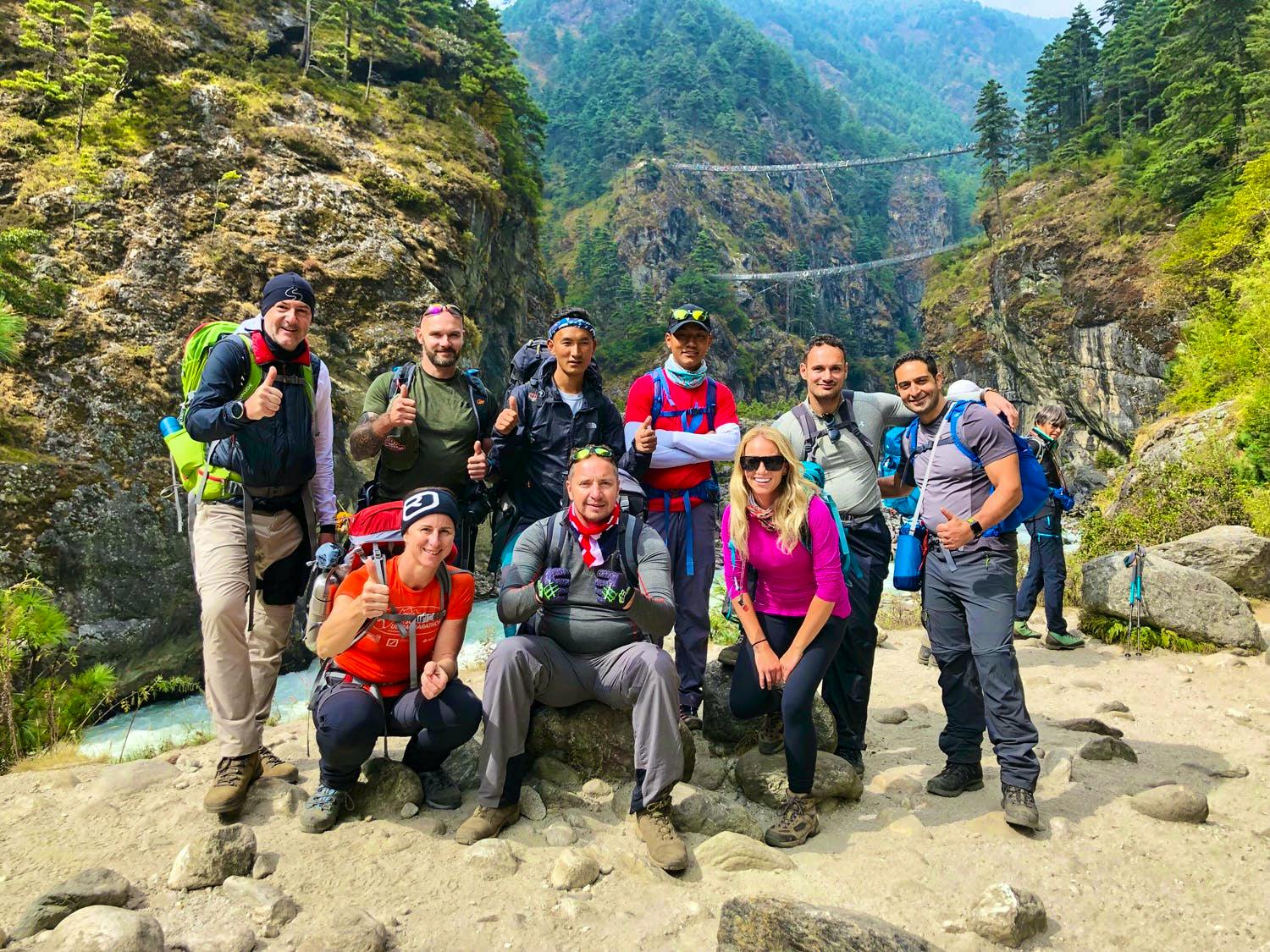
There will be moments when you question your ability to go on, but pushing through those mental barriers brings a sense of accomplishment that’s hard to put into words. It’s a lesson in resilience, determination, and the incredible capabilities of the human body and mind.
And let’s not forget the camaraderie. The trek fosters community among participants, as everyone is battling the same elements and challenges. The friendships forged on the trail often last a lifetime, adding another layer of richness to the experience.
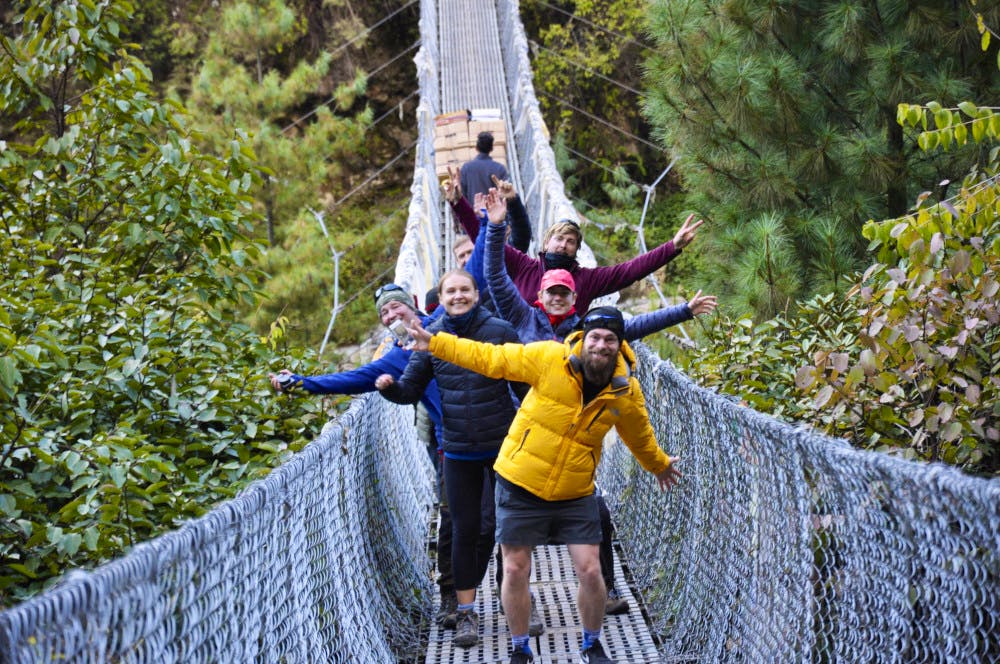

Latest Deals
4. The Sense of Accomplishment
There’s a moment as you take those final steps toward Everest Base Camp when the weight of your journey hits you. All the planning, the physical exertion, and the mental hurdles you’ve overcome culminate in this singular moment of triumph.
Standing at the base of the world’s tallest mountain, surrounded by the grandeur of the Himalayas, you’re filled with an overwhelming sense of accomplishment that’s both humbling and exhilarating.
It’s not just about the bragging rights—though let’s be honest, they’re pretty great—it’s about the personal journey you’ve undertaken to get here.
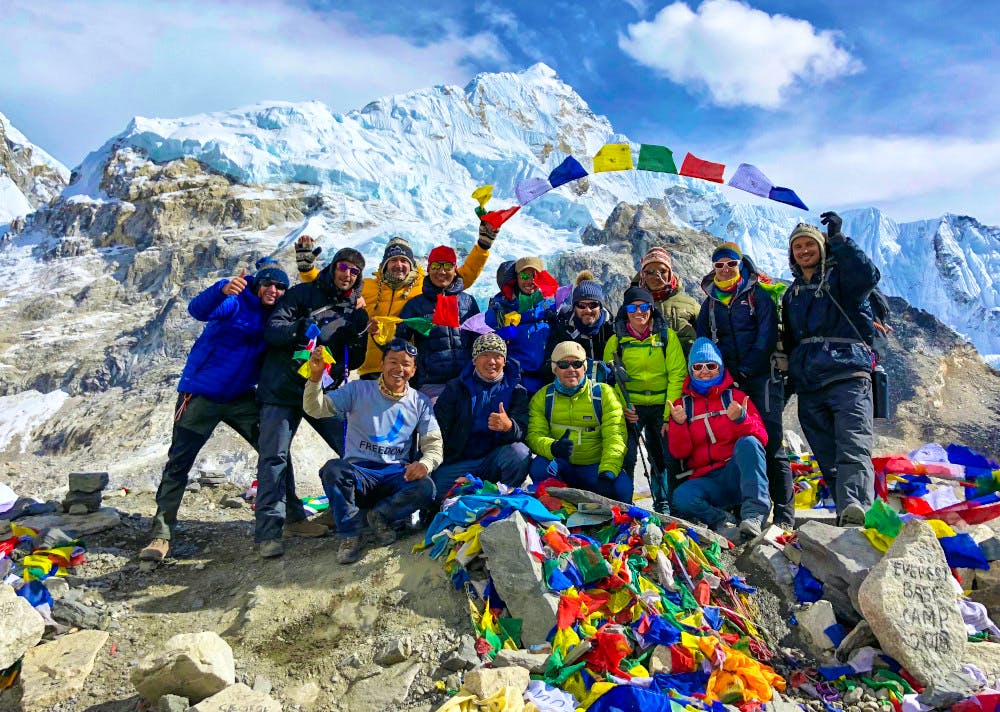
You’ve conquered a trek that many consider one of the most challenging in the world, but you’ve also conquered yourself. Your doubts, limitations, and fears have all been eclipsed by your achievement.
This sense of accomplishment is more than a fleeting emotion; it’s a transformative experience that stays with you. It serves as a tangible reminder of what you’re capable of, boosting your self-confidence and enriching your perspective on life.
In a world that often measures success in material terms, the intrinsic reward of reaching Everest Base Camp is a priceless treasure that you carry within you long after you’ve returned to the hustle and bustle of everyday life.
5. The Financial Investment
Let’s address the elephant in the room: trekking to Everest Base Camp is not budget-friendly.
With costs for guided tours ranging from a few thousand dollars to well over that, it’s a significant financial commitment. But here’s the kicker—it’s an investment in an experience that’s truly priceless.
Think about it. You’re not just paying for a hike; you’re investing in a life-altering journey that challenges you physically, mentally, and emotionally.
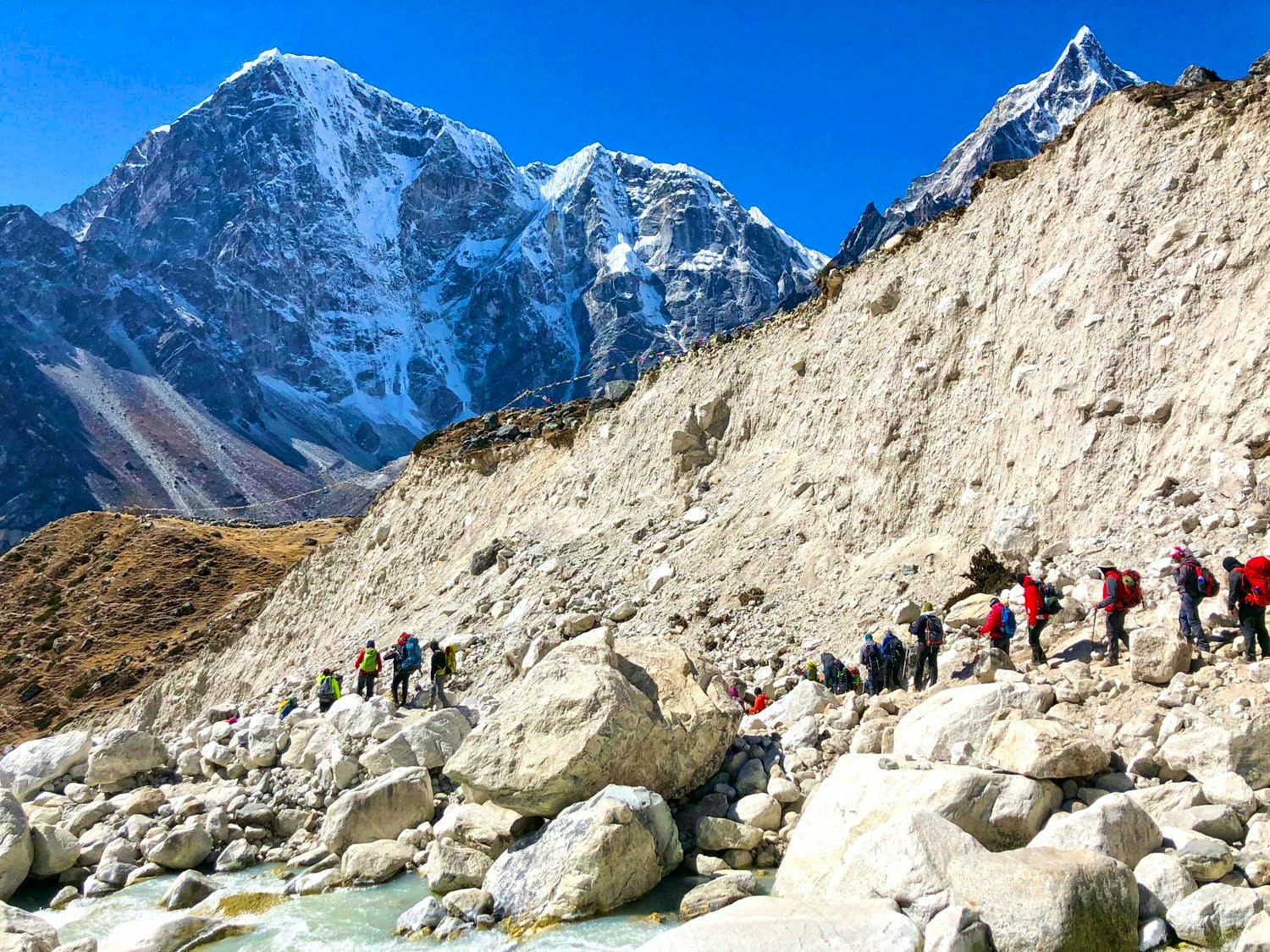
The cost covers the logistics, like guides, porters, and permits, and the invaluable peace of mind that comes with professional expertise. It ensures you’re well taken care of, so you can focus on soaking in the experience rather than worrying about the details.
Moreover, the financial investment extends beyond the trek itself. It contributes to the local economy, supporting the Sherpa communities and other locals who make this incredible journey possible.
Your investment has a ripple effect, making a positive impact that goes beyond your personal adventure.
So, is the financial outlay worth it? In a word, absolutely. It’s an experience that enriches your soul and broadens your horizons in ways that no other adventure can.
How to Get the Most Out of Your Everest Base Camp Trek
So you’ve decided to take on the Everest Base Camp trek—congratulations! Now, let’s talk about maximising your experience on this incredible journey to make it memorable and worth it.
Choosing the Right Time to Go
When planning your EBC adventure, one of the most crucial decisions you’ll make is choosing the best time to trek to Everest Base Camp.
While the trek is relatively accessible, each season offers a unique experience, and picking the right time can make all the difference.
The most popular times are pre-monsoon (March to May) and post-monsoon (September to November).
During these months, the weather is generally stable, and the visibility is excellent, offering crystal-clear views of the majestic Himalayas. Pre-monsoon brings the added beauty of blooming rhododendrons, while post-monsoon offers a landscape refreshed by the rains.
Packing Smart
When it comes to a trek of this magnitude, smart packing is essential. Your Everest Base Camp packing list should be well-thought-out, ensuring you’re prepared for the diverse conditions you’ll encounter.
The key is to pack light but smart, focusing on essentials that offer maximum utility without weighing you down.
Start with the basics: moisture-wicking base layers, insulating mid-layers, and waterproof outer layers. Don’t skimp on quality; investing in good trekking gear can improve your comfort and safety. Footwear is another critical component; opt for sturdy, waterproof hiking boots with good ankle support.
Acclimatisation is Key
Proper acclimatisation is one of the most critical aspects of a successful Everest Base Camp trek. Ignoring this step can lead to altitude sickness. This condition can range from mild discomfort to severe, life-threatening symptoms.
The trek takes you to elevations above 17,000 feet, with thin air and low oxygen levels. Acclimatising to these conditions is not just advisable; it’s essential.
Most guided treks incorporate acclimatisation days into the itinerary, usually at crucial elevations like Namche Bazaar and Dingboche. These are days when you’ll trek to a higher altitude but return to sleep at a lower elevation, allowing your body to adjust.
Pro tip: It’s also a good idea to stay hydrated and avoid alcohol and caffeine, as they can further exacerbate altitude sickness symptoms.
Training for Success
While the Everest Base Camp trek is accessible to people of varying fitness levels, proper preparation is critical to enjoying the experience fully.
Your training plan for an Everest Base Camp hike should ideally start three to six months before your trek. The goal is to build strength and endurance, as you’ll be trekking for several hours daily, often over steep and uneven terrain.
Cardiovascular exercises like running, cycling, and swimming are excellent for building stamina. Aim for at least 30 minutes of cardio three to four times a week. As you get closer to your trek, try to incorporate hill runs or stair climbing to simulate the conditions you’ll face.
Managing Your Budget
Let’s face it: the cost to go to Everest Base Camp is a significant financial commitment. However, with some savvy planning and budget management, you can ensure you get the most value for your investment.
The key is to know where to splurge and where to save.
Firstly, don’t cut corners on essential gear and guided services. These are critical for your safety and well-being, and skimping here could compromise your entire experience.
Another tip is to carry enough cash in local currency, as ATMs are scarce and credit card fees can be high. This allows you to manage your daily expenses better and avoid unexpected costs.
So, is Everest Base Camp worth it? I wholeheartedly say yes.
More EBC Articles
Popular EBC Trips
Find your next adventure
Why Skyhook?
Join over 27,000 Skyhook adventurers who've used our platform to book directly with our vetted local guides, at local prices (we never markup).
Expert Local Guides
Experienced local guides, handpicked by us.
Best Prices
Never pay a markup on the local guide's price.
Exclusive Club
Earn loyalty rewards every time you travel.
Great Social Vibes
Small group tours provide a richer experience.
Stellar Feedback
Over 2,800 reviews, average of 4.9/5 stars.












